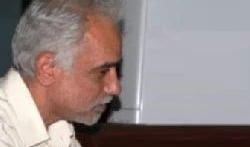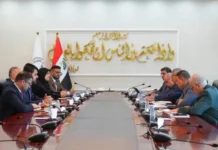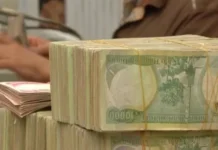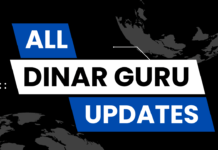As citizens, we have a responsibility to our homeland, driven by our love for it and our sense of identity within it. This responsibility is reflected in our actions at all levels of society. In post-fall Iraq, numerous private banks have emerged, and while their origins and operations are unclear, they have a legitimate responsibility to ensure that their gains are lawful and contribute to the nation’s progress.
In the interactions between these banks and their clients, the primary factor is money, particularly the US dollar, which derives its value from the power of American policies towards other nations. Without the support of gold reserves, there are constraints on OPEC’s ability to avoid using this currency. However, there are political forces at play, with certain leaders harboring secrets known only to themselves and their associates.
It is understandable to question why Iraqi banks continue to deal in dollars, especially considering the difficulties Iraq has faced due to American policy. Despite the valid license for these transactions, it may be worth exploring the use of different currencies to avoid potential risks and vulnerabilities. It is important for banks to prioritize the safety and well-being of their customers and the Iraqi people as a whole.
It’s understandable for banks in Iraq to use their own currency and other world currencies, including the US dollar. However, when faced with American blackmail, why not devalue the dollar? Are there potential financial losses involved? It’s worth noting that the true cost in this scenario is the embarrassment that comes with trading in a currency that is seen as hostile by Americans.
Are banks completely dependent on earning commissions from savings, transfers, and exchanges? Moreover, there are concerns about corruption in the stock market associated with the trade of foreign currency, like the dollar at the official rate, when its worth was 118,000 for every hundred dollars. Late Ahmed Chalabi referred to this issue. Furthermore, some banks are involved in money laundering. It would be preferable for banks to invest in industrial, commercial, and agricultural companies, and profit based on a percentage of profits, instead of engaging in usurious transactions. Regrettably, many banks participate in usury by means of legal deception.
I had an unfortunate experience with my family bank. I gave them an installment for my private college fees, but when they counted the amount, they asked for an extra fifty thousand dinars. When I asked why, they said it was a commission. My friend also had a similar issue with another family bank.The individual had put in a deposit of 10 million dinars, but when attempting to withdraw the funds, the bank declined to give him the full amount. An employee later called him and asked for 250 thousand dinars in exchange for withdrawing the amount on his behalf.
I would like to discuss the impact of the dollar on global economies. It’s a powerful currency, and citizenship plays a significant role in its strength. To boost our own currency and attract investment, we must implement certain conditions. We should collaborate to bolster our economy.
During the time of Imam al-Baqir, peace be upon him, the Umayyad caliph Abd al-Malik ibn Marwan faced a threat from the king of the Romans, who demanded a non-Islamic slogan be placed on the currency due to their reliance on it. It is important for the responsible authorities to implement strict regulations on bank operations and for Iraqi bank owners to support the government for the betterment of the Iraqi economy.




